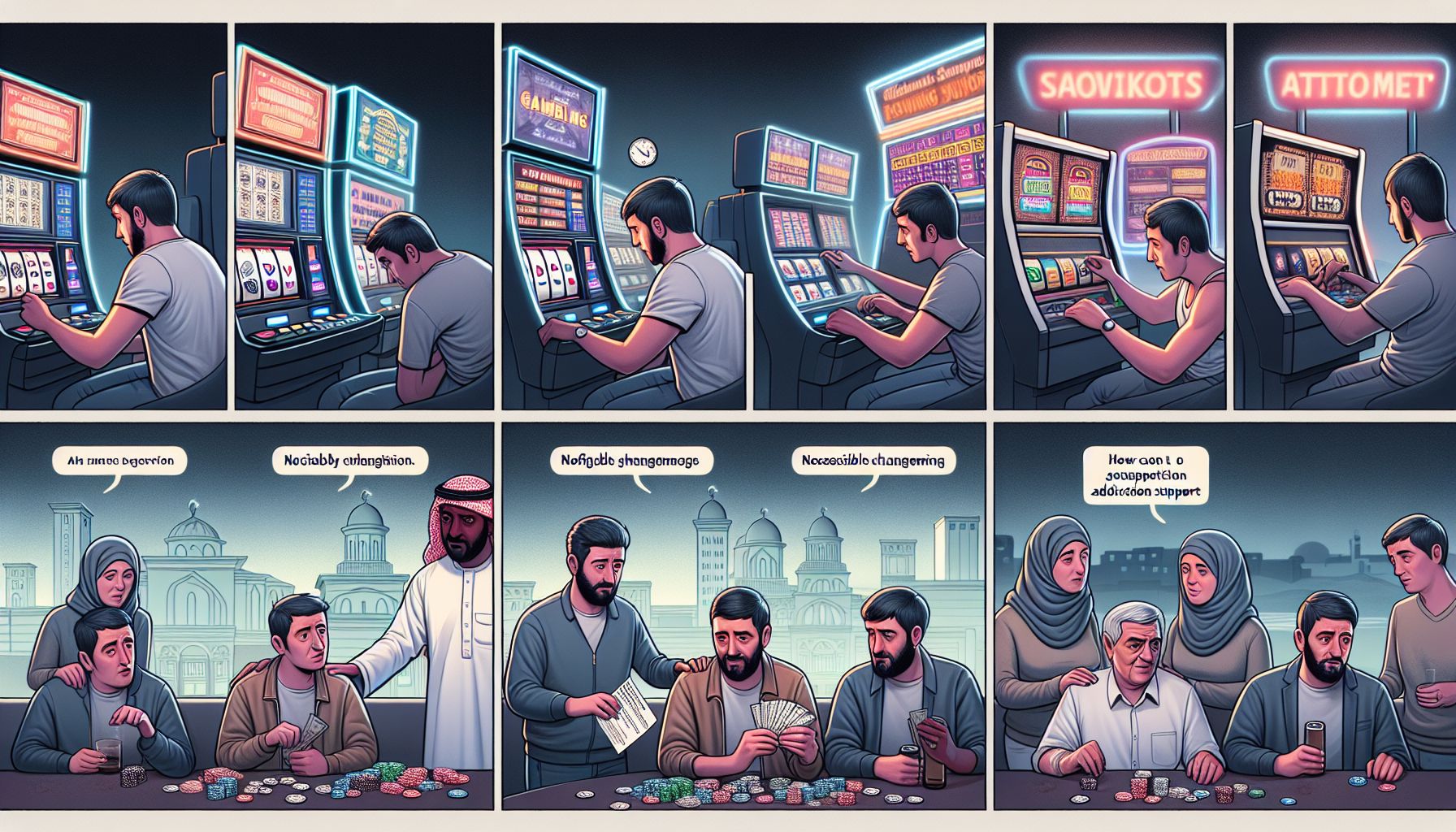Gambling has been a part of human society since ancient times. From card games and dice to lotteries and sports betting, the thrill of taking a risk and making a bet has attracted people for centuries. Initially, gambling was seen as a form of entertainment and a way to win some easy money. However, for some individuals, gambling can become a harmful addiction that disrupts their lives and relationships.
Gambling addiction, also known as compulsive gambling, is a type of behavioral addiction. It is characterized by an individual’s inability to control their urge to gamble, even when it has negative consequences on their life. It can also be referred to as a hidden addiction as individuals often hide their gambling habits from their loved ones. In this blog, we will discuss the signs of gambling addiction and how individuals can seek help.
Signs of Gambling Addiction
Gambling addiction can affect individuals of all ages, genders, and backgrounds. It is not just limited to casino games; online gambling, sports betting, and even buying lottery tickets can also become addictive. Although gambling addiction has no clear cause, there are certain factors that can increase the risk, such as mental health conditions like depression and anxiety, a history of substance abuse, and a family history of gambling addiction.
It is essential to recognize the signs of gambling addiction to understand if you or someone you know is struggling with it. Here are some common warning signs of gambling addiction:
1. Preoccupation with Gambling
One of the most significant and noticeable signs of gambling addiction is when an individual becomes obsessed with gambling. They may constantly talk about gambling, make future plans to gamble, and seem restless and irritable if they are unable to gamble.
2. Increased Financial Strain
Individuals with gambling addiction may start to experience financial problems, such as struggling to pay bills, borrowing money, or maxing out credit cards, to fund their gambling habits. They may also sell personal belongings or lie about their finances to cover up their gambling expenses.
3. Failed Attempts to Cut Back or Stop Gambling
People with gambling addiction may express a desire to stop or reduce their gambling habits, but they are unable to follow through. They may lie about their gambling or make excuses to keep gambling, even when they promised to stop.
4. Changes in Behavior and Mood
Gambling addiction can cause changes in a person’s behavior and mood. They may become secretive about their whereabouts, avoid social events, and distance themselves from friends and family. They may also become anxious, irritable, and easily agitated if they cannot gamble.
5. Chasing Losses
A common sign of gambling addiction is the urge to recoup losses, leading to more significant bets and higher risks. This behavior is known as “chasing losses” and can lead to a cycle of continuous gambling and financial strain.
6. Neglecting Responsibilities
As gambling addiction takes a toll on an individual’s life, they may start to neglect responsibilities in different areas of their life, such as work, family, and personal hygiene. They may also miss deadlines, show up late, or skip work to gamble.
Seeking Help for Gambling Addiction
It may be challenging to admit to having a gambling addiction, but it is the first step towards seeking help. With the right support and treatment, individuals can overcome their addiction and lead a healthy and fulfilling life. Here are some ways to seek help for gambling addiction:
1. Seek Professional Counseling
Counseling or therapy is an essential step for recovery from gambling addiction. A licensed therapist or counselor can help individuals identify the root cause of their addiction, develop coping mechanisms, and manage triggers that may lead to relapse.
2. Join a Support Group
Support groups, such as Gamblers Anonymous, provide a safe and non-judgmental space for individuals struggling with gambling addiction. It offers peer support, allows individuals to share their experiences, and provides a sense of accountability.
3. Set Financial Limits
Individuals can seek help from a financial advisor or a credit counselor to learn how to manage their finances better. Setting financial limits and creating a budget can help individuals gain control over their spending habits and pay off debt.
4. Explore Alternative Activities
Rather than spending time and money on gambling, individuals can explore new and healthy activities such as exercise, painting, or volunteering. Engaging in enjoyable activities can help reduce stress and provide a sense of fulfillment.
5. Involve Family and Friends
It is essential to involve close friends and family members in the recovery process. They can offer support and understanding, which can be crucial in overcoming gambling addiction. Family members can also provide encouragement and help individuals stay accountable.
Conclusion
Gambling addiction is a serious issue that can affect an individual’s life in various ways. It is crucial to recognize the signs and seek help to overcome this addiction. With the right support and treatment, it is possible to break the cycle of gambling addiction and regain control of one’s life. If you or someone you know is struggling with gambling addiction, do not hesitate to reach out for help. Remember, it is never too late to start the journey towards recovery.








